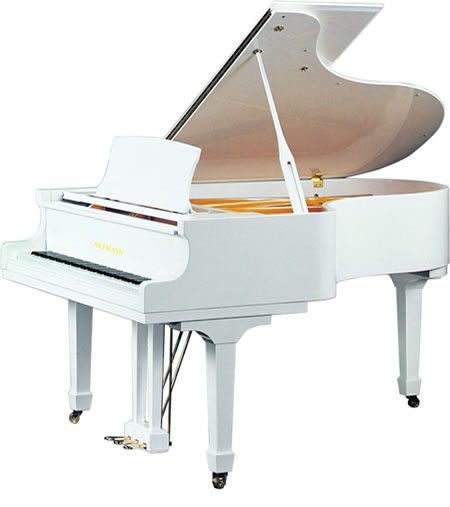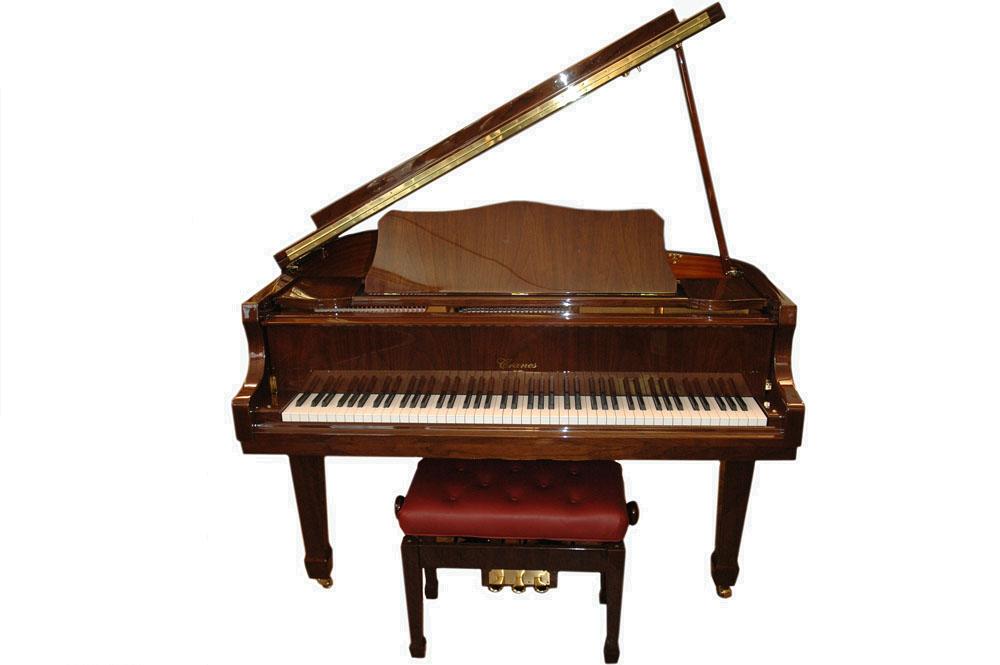The Baby Grand Piano is an amazing musical instrument that produces a very distinctive, 
This holds true for older baby grand models, but if you take good care of these older models, you can steer clear of costly restoration and maintenance fees. Here are some useful tips I have compiled to help you care for your baby grand properly.
Placement of the Piano
Piano owners, for the most part, make the mistake of placing their Baby Grand Piano in the most unlikely places. The wood used to construct the cabinet is susceptible to shrinkage and swelling caused by humidity and heat. The constant fluctuation in temperature can cause changes to the soundboard and tiny cracks in the piano surface.
Therefore, the first piano care tip I have for you is to place your piano in an area with sufficient temperature control. This is imperative. Avoid placing the piano near fireplaces, doors, windows, and vents. If necessary, you should consider purchasing a quality humidifier or a dehumidifier.
Tune the Piano Regularly
Recently, a Baby Grand Piano owner called to ask for advice concerning his piano. He claimed that it was out of tune and that the piano had only been in his possession for a little over a year only. I asked if he had tuned the piano, but according to him he has not done it yet. While I have stated in other blogs that you should tune your piano at least twice a year, it is relatively different when it comes to a brand new baby grand.
In order to keep its pitch smooth as it acclimatizes to the surroundings, you need to get it tuned at least three times in the first year of owning it. Thereafter, you should tune it twice a year or as frequently as you see fit. Keep in mind that transporting the piano, obtaining new strings, and changes in temperature can influence the pitch immensely. Consequently, your baby grand may require tuning if any of these examples happen.
Keep the Keyboard Clear of Dust
To prevent key discoloration and dust buildup, you should consider keeping the keyboard covered whenever you are not playing the Baby Grand Piano. However, if you own an older model, you should leave the keys uncovered at irregular intervals, particularly if they are ivory keys, to avoid discoloration. Use a feather duster to clear the body and keys from dirt and dust. Make sure that you use the feather duster lightly and with careful movements to avoid the dust particles from scratching the piano surface.
Utilize Flannel-Like Materials
When I clean my Baby Grand Piano, I always use moist, flannel-like materials. Clean the keys from back to front, instead of side to side. To avoid stain transfer from ivories to sharps, I use two different cloths. Clean the body according to the finish pattern or the wood grain.
Polish the Piano
To maintain its beauty, you should polish the finish sparingly and meticulously. Do not use any household polish product for your piano, as it can ruin the beautiful finish. You need to purchase a polish brand that is specifically designed for this type of musical instrument. Ensure that the polish is made for semi or high gloss finishes, and not satin.
With these piano care tips, I can assure you that you Baby Grand Piano will last a lifetime and you do not have to worry about any inconsistency. If you have cash to spare, you should think about hiring a professional to clean your piano occasionally.
How often do you use your baby grand?








I have a Samick digital baby grand. What do you recommend for cleaning the finish?
Microfiber cloths work great!
I have a Yamaha baby grand and in Florida we keep it in the living room and the home is at 78 degrees and 40 percent humidity. It has been here for 6 years and it is tuned once a year. We thought about bumping the temp to 80 degrees. Is this not good for the piano if the humidity stays at 40 percent?
It’s ok! Humidity control is more important than temperature, so your piano should be fine.
I am happy to say I have acquired a beautiful Baldwin baby grand that has been well cared for, for over 40 years. I probably keep my indoor room temperature a little cooler than many. What temperature and humidity should I maintain in the room that the piano will reside in? It is moving only 30 miles from it’s present location.
Congrats on the Baldwin! For humidity, 30-50% is fine. In terms of temperature, generally if you’re comfortable, so is the piano. Any where from 68-78 degrees should be fine.